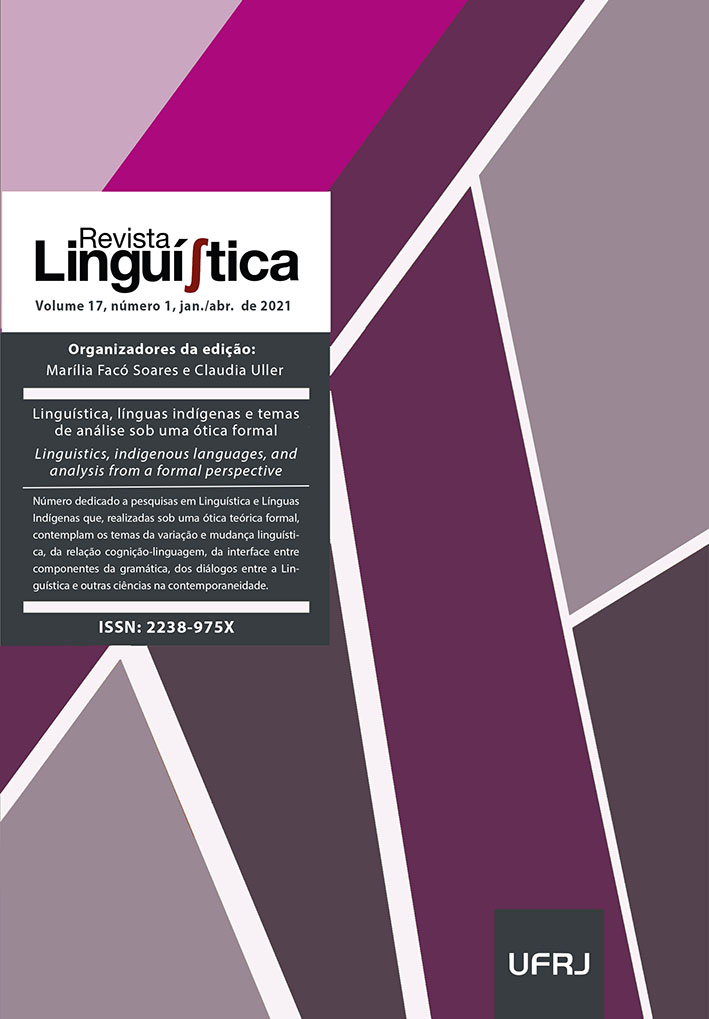Towards an agenda to investigate language development in an indigenous group in the Amazon
DOI:
https://doi.org/10.31513/linguistica.2021.v17n1a55123Palavras-chave:
Quantificação e habilidades numéricas, sistemas numéricos e desenvolvimento conceitual, aquisição da Linguagem, cognição e linguagem, línguas amazônicas.Resumo
O presente trabalho avança uma agenda de pesquisa no campo mais amplo de linguagem e cognição, com vista ao estudo da expressão de conceitos numéricos no desenvolvimento inicial. No cerne da agenda proposta, está a questão da relação entre a aquisição de primeira língua e a expressão de conceitos numéricos na infância. Existem dois processos para explicar a expressão da informação numérica nas línguas. A primeira se dá por meio da estrutura gramatical da língua (seu sistema quantificacional). A segunda é a expressão direta do número com o uso de expressões de linguagem numérica. O primeiro processo é denominado “número gramatical”, o segundo, “número linguístico”. Na tentativa de levantar questões que vão além das investigações anteriores e expandir as considerações linguísticas e cognitivas, a proposta inclui discussões sobre várias habilidades numéricas em diferentes contextos linguísticos à luz do desenvolvimento conceitual de sistemas de numeração. Esperamos que esta proposta levante questões cognitivas e linguísticas interessantes no âmbito das línguas faladas por povos originários amazônicos.Downloads
Não há dados estatísticos.
Downloads
Publicado
2021-04-12
Edição
Seção
Artigos
Licença
Autores que publicam na Revista Linguí∫tica concordam com os seguintes termos:
Os autores mantêm os direitos e cedem à revista o direito à primeira publicação, simultaneamente submetido a uma licença Creative Commons que permite o compartilhamento por terceiros com a devida menção ao autor e à primeira publicação pela Revista Linguí∫tica.
Os autores podem entrar em acordos contratuais adicionais e separados para a distribuição não exclusiva da versão publicada da obra (por exemplo, postá-la em um repositório institucional ou publicá-la em um livro), com o reconhecimento de sua publicação inicial na Revista Linguí∫tica.

A Revista Linguí∫tica é uma revista do Programa de Pós-Graduação em Linguística da UFRJ e se utiliza da Licença Creative Commons - Atribuição-NãoComercial 4.0 Internacional (CC-BY-NC)









